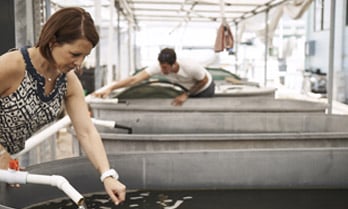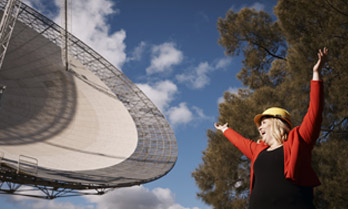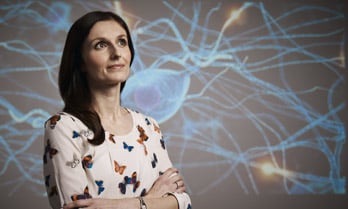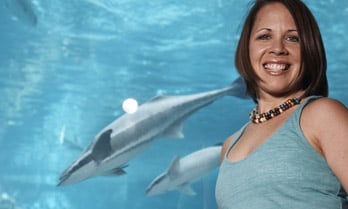2015 L’Oréal-UNESCO For Women in Science Australia & New Zealand Fellows
08 September 2015
The winners of the 2015 L’Oréal-UNESCO For Women in Science Australia & New Zealand Fellowships are studying sharks, future memories, heavy stars, and climate change.
The winners of the 2015 L’Oréal-UNESCO For Women in Science Australia & New Zealand Fellowships are studying sharks, future memories, heavy stars, and climate change.
The Australian Fellows are:
A hot future for sharks: marine biologist Jodie Rummer, Townsville
How we imagine the future: cognitive neuroscientist Muireann Irish, Sydney
The short lives of hard-living, fast burning, high mass stars: astronomer Shari Breen, Sydney
The inaugural New Zealand Fellow is:
When the oceans were 20 metres higher: revealing past and future climates: geologist Christina Riesselman, Dunedin
Fellowship Ceremony
The $25,000 Fellowships will be presented by Rodrigo Pizarro, Managing Director, L’Oréal Australia & New Zealand on Tuesday 8th September from 7 pm, at Est. in Sydney.
The 9th Annual L’Oréal-UNESCO For Women in Science Australia Fellowships and the first L’Oréal-UNESCO For Women in Science New Zealand Fellowship recognise four remarkable early-career female scientists, each at the cutting edge of research. They are:
 Dr Jodie Rummer swims with sharks for her research. She is fascinated by fish and their ability to deliver oxygen to their muscles 20 to 50 times more efficiently than we can. Her global research into salmon, mackerel, hagfish and now sharks explains why fish dominate the oceans. Her L’Oréal-UNESCO Fellowship will help her predict how sharks and other fish will cope with rapidly changing oceans. Some will be winners, some will be losers in the climate change stakes.
Dr Jodie Rummer swims with sharks for her research. She is fascinated by fish and their ability to deliver oxygen to their muscles 20 to 50 times more efficiently than we can. Her global research into salmon, mackerel, hagfish and now sharks explains why fish dominate the oceans. Her L’Oréal-UNESCO Fellowship will help her predict how sharks and other fish will cope with rapidly changing oceans. Some will be winners, some will be losers in the climate change stakes.
Jodie is a marine scientist at James Cook University and the ARC Centre of Excellence for Coral Reef Studies in Townsville.
 Dr Muireann Irish has discovered which parts of our brain are essential to imagine the future, ranging from simple things like “I must remember my keys and my wallet when I go out,” to imagining complex events such as “my next holiday”. And she has shown that people with dementia don’t just lose the ability to remember the past, they also lose the ability to envisage the future. She will use her L’Oréal-UNESCO For Women in Science Fellowship to better understand how dementia affects this cognitive function. She expects her work will inform the development of activities for patients that will improve their quality of life and reduce the burden faced by caregivers.
Dr Muireann Irish has discovered which parts of our brain are essential to imagine the future, ranging from simple things like “I must remember my keys and my wallet when I go out,” to imagining complex events such as “my next holiday”. And she has shown that people with dementia don’t just lose the ability to remember the past, they also lose the ability to envisage the future. She will use her L’Oréal-UNESCO For Women in Science Fellowship to better understand how dementia affects this cognitive function. She expects her work will inform the development of activities for patients that will improve their quality of life and reduce the burden faced by caregivers.
Muireann is a cognitive neuroscientist at Neuroscience Research Australia and the University of New South Wales in Sydney.
 We are made of star stuff. The nitrogen in our DNA, the calcium in our teeth and the iron in our blood were all made in high mass stars that burnt briefly and brightly before exploding. Dr Shari Breen is using ‘The Dish’ at Parkes and a network of international telescopes to understand the birth and evolution of these stars. For her the 1,000 tonne Parkes radio telescope is an old friend that creaks and grumbles as she guides it across the sky, hunting for high mass stars. She will use her L’Oréal-UNESCO Fellowship to develop her use of masers (laser-like beams of intense radio waves) to investigate these stars.
We are made of star stuff. The nitrogen in our DNA, the calcium in our teeth and the iron in our blood were all made in high mass stars that burnt briefly and brightly before exploding. Dr Shari Breen is using ‘The Dish’ at Parkes and a network of international telescopes to understand the birth and evolution of these stars. For her the 1,000 tonne Parkes radio telescope is an old friend that creaks and grumbles as she guides it across the sky, hunting for high mass stars. She will use her L’Oréal-UNESCO Fellowship to develop her use of masers (laser-like beams of intense radio waves) to investigate these stars.
Shari is an astronomer with CSIRO in Sydney.
 Three million years ago Earth was much as it is today – familiar continents, animals, and carbon dioxide levels. But temperatures were higher and sea levels were also about 20 metres higher. Today, a billion people live on land less than 20 metres above sea level and carbon dioxide levels are rising.
Three million years ago Earth was much as it is today – familiar continents, animals, and carbon dioxide levels. But temperatures were higher and sea levels were also about 20 metres higher. Today, a billion people live on land less than 20 metres above sea level and carbon dioxide levels are rising.
Working on the Antarctic ice shelf and at sea Dr Christina Riesselman collects sediment cores from hundreds of metres under the sea floor and reads the climate history of millennia past using the microscopic fossilised fish teeth and diatomic algae she finds in the cores.
Christina will use her L’Oréal-UNESCO For Women in Science Fellowship to turn her focus to the end of the last Ice Age around 10,000 years ago. Christina’s research could help us understand and plan for the impact of our planet’s rapidly changing climate.
Christina is a geologist at the University of Otago in Dunedin.
The L’Oréal-UNESCO For Women in Science Fellowships provide $25,000 to each of the Fellows to support them in their specialist area of research.
Over the past eight years the Fellowships have become the preeminent award for early-career women in science in Australia and New Zealand, and past Fellows have continued their remarkable research to establish themselves as science leaders and science advocates.
This National Fellowship program is part of L’Oréal’s international program in partnership with UNESCO. Over 2250 female scientists have been recognised globally including science leaders such as Elizabeth Blackburn, who was honoured as a Laureate of the L’Oréal-UNESCO For Women in Science in 2008 and went on the following year to win a Nobel Prize.
Media enquiries please contact:
For Australia: Christine Burke, L’Oréal Australia, Corporate Communications Director on +61 2 8586 7441, +61 411 142 622 or [email protected]
For New Zealand: Tanya Abbott, Communications Manager, L’Oréal New Zealand on +64 9 583 4003 or [email protected]



